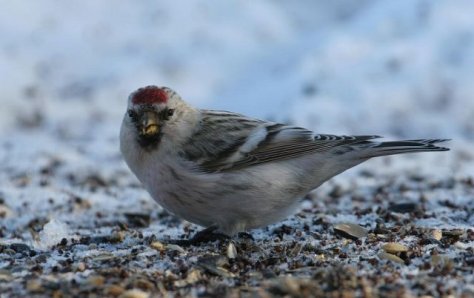Birder’s diary - 29.02
Birder: Margus Ots, linnuvaatleja.ee
Translation: Liis
Sõrve säär had pleasant spring weather all day – no wind, and the sun warmed nicely. But migration was nearly non-existent, only some swans and mergansers looked as if they had just arrived from Latvia. I didn’t see any new arrivals, that is, no new species although I stayed in the sea bunker for 4-5 hours. The most interesting bird of the day turned out to be an Asio owl that flew from Suurerahu, to the west of the bunker, straight to Latvia. As far as could be seen in the telescope the bird didn’t turn off anywhere. Regrettably it was too far off for precise identification. In daytime it should be more likely to meet a short-eared owl, but it could also be a long-eared owl. But to decide on a short-eared owl from behaviour would be a clear case of species-twisting. Although according to the rules points can be awarded for a not precisely species if no species are as yet noted from the pair or group of similar birds I wasn’t going to blot my year list with this unspecified Asio owl. Long-eared owls I will be sure to meet during the year on many occasions, even dozens of times. The short-eared owl is a bird more difficult to find but that too I will probably meet without too much trouble.
Arctic redpoll (29.02.2012 Sõrve säär)
In the beautiful weather some changes took place at the bird feeding places too. On the shore only some twenty birds were left of the hundred buntings, and from the large skylark flock only some ten were still there. Evidently they had flown on towards north. But to the earlier three stock dove, more birds had arrived, now they were already five on the ice. At the bird station feeding place there was a constant throng. Among the large numbers of finches and tits suddenly an Arctic redpoll appeared in camera view. One shutter click, and it was gone again. I have not seen this species in Saaremaa before.
Altogether 9 oil-soiled long-tailed ducks were on the Sõrve säär shores today, also 1 red-breasted merganser. They will all evidently die during the next few days, warm weather sadly only prolongs their pain. Luckily new oily birds have not appeared and hopefully will not appear.
Oil-soiled long-tailed ducks try to clean themselves (29.02.2012 Sõrve säär)










